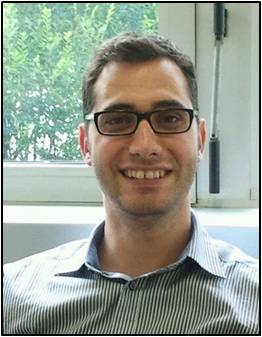Journal of Research and Development
Open Access
ISSN: 2311-3278
+44-20-4587-4809
ISSN: 2311-3278
+44-20-4587-4809

Massimo Donadelli
Section of Biochemistry
University of Verona, Italy
Dr. Massimo Donadelli received a degree in biology, summa cum laude, from the University of Parma (Italy). He was a Ph.D. Fellow (2001–2004), a Research Fellow (2000-2001), and a Post-Doc Research Fellow (2005–2007) at the University of Verona, Italy. Since 2007, he has been an Assistant Professor in Biochemistry at the Section of Biological Chemistry, Department of Life and Reproduction Sciences, University of Verona (Italy). His scientific interests include identification of novel therapeutic strategies against human tumors, in particular, pancreatic adenocarcinoma. He is a member of Italian Society of Biochemistry and Molecular Biology (SIB) and Italian Association of Cell Culture (AICC). He is an Editor of 2 international peer-reviewed journals (Dataset Papers in Medicine and Modern Chemotherapy) and he is serving as a reviewer of several international journals, such as Cancer Letters, BBA-Molecular Cell Research,Tumor Biology, and Current Protein & Peptide Science.
The research lines of Dr. Massimo Donadelli, PhD and Assistant Professor in Biochemistry, have beenmainly addressed to the identification of innovative strategies to inhibit pancreatic adenocarcinoma cell proliferationin vitro and in mice models, with special attention to the mechanisms of cell resistance to the goldstandard chemotherapeutic drug gemcitabine. Dr. Donadelli has a consolidated experience in the transcriptional regulationof genes by epigenetic modifications, as histone acetylation/methylation and cytosine methylation, and inthe regulation of oxidative stress by different mechanisms in pancreatic adenocarcinoma cells. In the last years,the research studies of the PI have been focused on the regulation of autophagy as a therapeutic strategy and in(mutant) p53 regulation by p53-reactivating molecules in pancreatic adenocarcinoma cell lines.